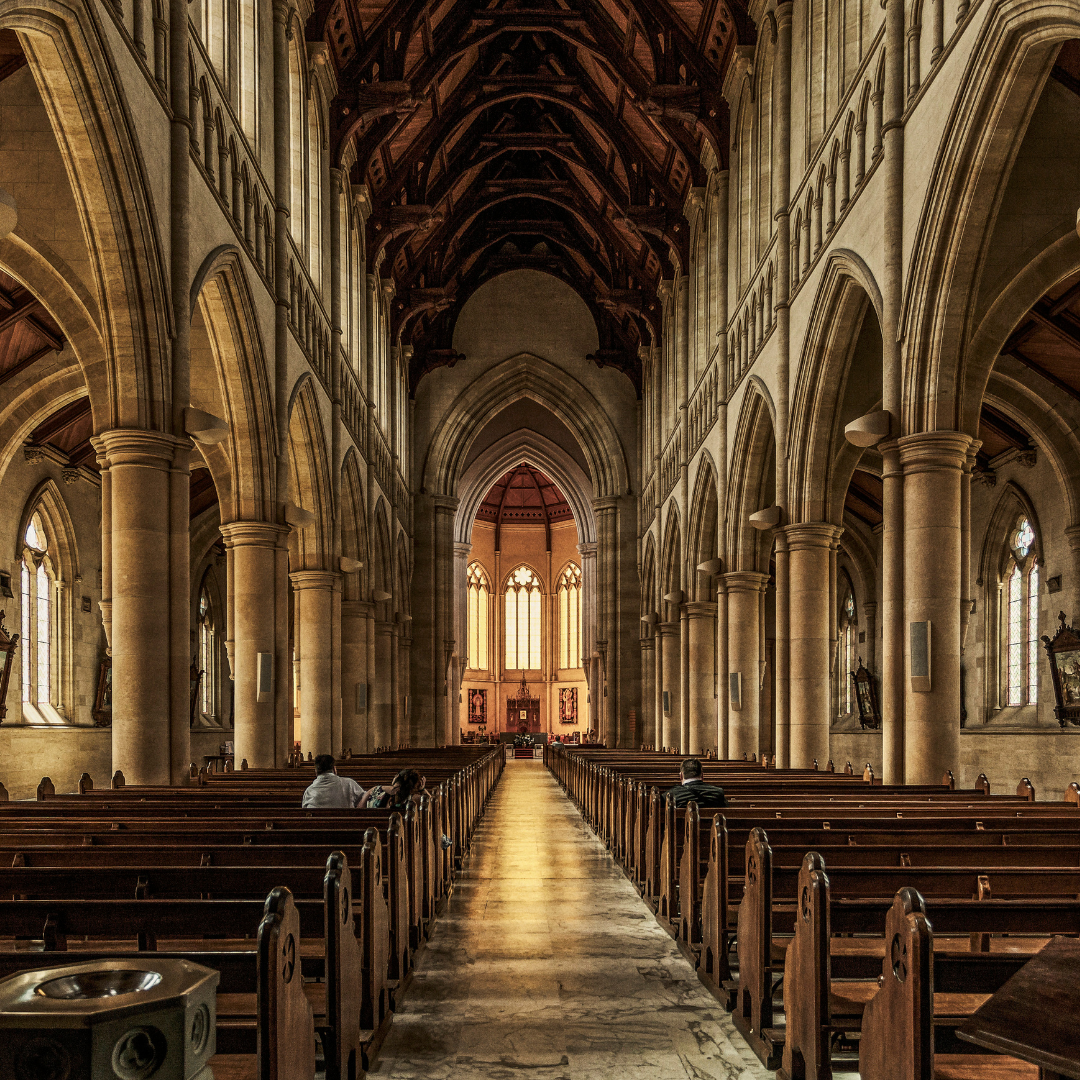Worship as Dialogue
Imagine it’s Sunday morning in downtown Dunn. As the clock gets closer to 10am, you see on Broad Street a number of different people walking to the same door. As they enter, they greet each other and chat, eventually finding their way to a seat.
Over the next hour and a half you see this group singing, reading, praying, listening to someone speak, then eating a piece of bread and drinking a bit of wine/grape juice. Much of this seems incredibly ordinary. Ordinary people in ordinary clothes, speaking and reading ordinary words, eating and drinking ordinary bread and wine inside an ordinary building. But what just happened is anything but ordinary, and something that was repeated in other buildings on other streets in our town, in our state, and worldwide.
What has happened is worship.
What is Worship?
“Worship” is a word that can mean different things to different people. For some it’s a private time of meditation and prayer. For others it brings images of cathedrals, temples, or mosques and rituals. Still others will think of worship as a passionate time of self-expression, where someone demonstrates devotion to a god.
All these definitions of worship have one thing in common: they all define ‘worship’ as something we do. But that is to get things backwards, because the primary person at work in worship is not us. It’s God.
If we primarily define worship as something we do, then we will inevitably lose the distinctly gracious reality of the good news of Jesus. Because Jesus doesn’t show us a god who is distant and indifferent, who needs us to shout loudly enough to be heard or live perfectly enough to be seen. Jesus shows us that God has moved heaven and earth to find and rescue us, God who has acted decisively in the life, death, and resurrection of Jesus to bring forgiveness, transformation, and hope to our world.
Defining '“worship” through the lens of who God shows himself to be means to begin our definitions with Him. When we do that, we find that worship is us meeting with our gracious God to be swept up, more and more, into his grace—to see our individual stories as part of God’s grand story of redemption.
To say it another way, worship is not primarily a time of self-expression where we show God how much love him by how earnestly we sing, how loudly we pray, or how attentive we are to a sermon. We are not performing. Worship is primarily a formative experience. As James K.A. Smith has written: “We are called to worship because in this encounter God (re)makes and molds us top-down…Worship isn’t just something we do; it is where God does something to us. Worship is the gymnasium in which God retrains our hearts.”
Worship as Dialogue
Back to our Sunday morning in downtown Dunn. What makes that ordinary scene extraordinary is that in all of those seemingly ordinary things God is present and at work to give us the grace we need. That is why our worship service is structured as a dialogue between God and us.
He has the first word, calling us to worship. We respond in prayer and praise—singing, confessing our sins, lamenting, and rejoicing. We are assured of his love and grace for us in the reading and preaching of Scripture—the sermon always pointing us to Jesus. We receive the Lord’s Supper, as we are spiritually nourished by Him. We give, entrusting our gifts to Him for the ongoing work of the church. And then, God receives the final word: the benediction, and we go out assured of his ongoing presence with us.
In all of this, God speaks to us by his Word in Scripture and moves upon us by his Holy Spirit in inwardly apply the grace of the gospel. He engages us not just in our minds, but in all of our senses to confirm that we are not our own, but we belong to Him and that He is for us. And we are reoriented to see our lives in light of God’s redeeming work.
This is why gathering together with others who have been swept into this grace is such a crucial part of what it means to follow Jesus in this world. Worshipping together is the primary place where God takes ahold of our hearts. When we worship together, we embody the gospel for one another as the body of Christ, all with our different gifts and personalities.
When we worship together, we recognize that there aren’t hierarchies of worthiness or righteousness in God’s kingdom and we find, as one people without resumes in our hands, a source of vindication and spiritual nourishment that’s received by all of us in the same way: as a gift.
This encounter serves as the starting point (the first day of the week!) of the rest of our lives, as we scatter into our various homes, schools, and vocations to live as people who are defined by the grace of God. This too can be rightly called worship—living all of our lives to glorify God. But our individual worship will be incomplete unless it is coming from and leading to gathering together to worship our God as one.
In the next few weeks I will be posting a number of blogs about the different aspects of our regular worship service, exploring what it is and how God works in that particular piece of our service for his glory and our good. Hopefully through deeper reflection on why our worship is structured the way it is, we can gain a greater love and appreciation for how God works to save, heal, and establish us.
To read the next post in this series, click here.



